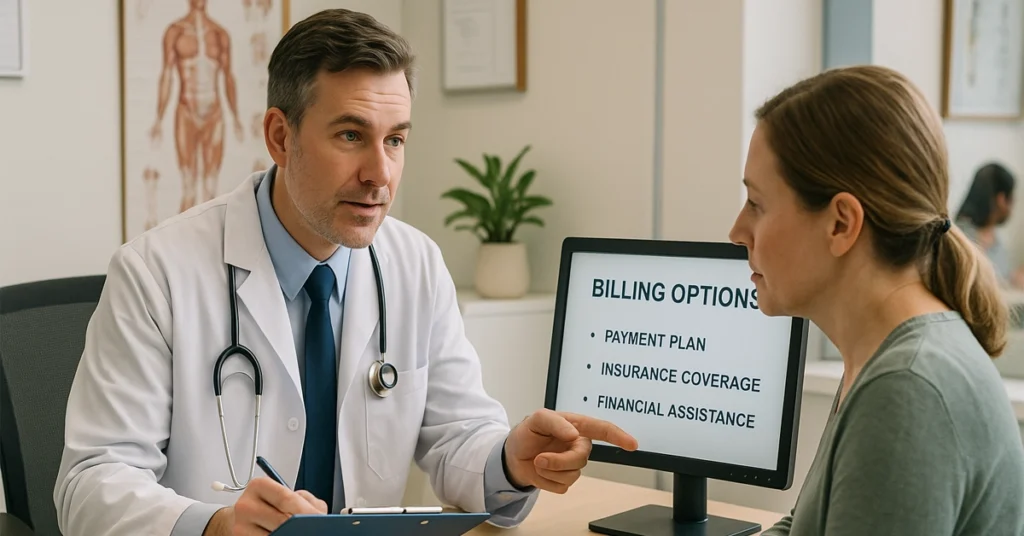Medical debt is a growing crisis in the U.S., affecting over 100 million Americans and disproportionately impacting low-income, uninsured, and marginalized communities. For healthcare providers, recovering unpaid bills is essential to financial sustainability but it must be done without compromising patient dignity or access to care. This guide explores how to ethically recover medical debt while upholding the core values of healthcare: compassion, equity, and trust.
Why Medical Debt Recovery Requires a Different Approach
Unlike other industries, healthcare providers serve people at their most vulnerable. Medical debt often arises from:
- Emergency care without upfront cost estimates
- High deductibles and out-of-network charges
- Insurance denials or delays
- Lack of financial literacy or language barriers
Recovering these debts requires a patient-first mindset, not just a collections strategy.
Establish Transparent Financial Policies
Clarity builds trust and reduces disputes.
- Provide itemized cost estimates before treatment when possible
- Explain billing timelines, insurance coordination, and payment options
- Display financial assistance policies prominently online and in-office
- Offer multilingual support and plain-language explanations
Tip: Transparency reduces confusion and improves patient satisfaction—even when bills are high.
Communicate With Empathy and Respect
Tone matters. Patients are more likely to engage when they feel heard and respected.
- Train staff in trauma-informed communication
- Avoid aggressive language or legal threats
- Use soft-touch reminders via text, email, or phone
- Offer to discuss bills in private, judgment-free settings
Offer Flexible, Patient-Centered Payment Options
Rigid billing structures can push patients into default. Instead, offer:
| Option | Benefit |
|---|---|
| Income-based payment plans | Aligns with patient ability to pay |
| Deferred billing | Allows time for insurance or estate resolution |
| Charity care screening | Identifies eligibility for financial assistance |
| Online self-service tools | Empowers patients to manage bills independently |
Stay Compliant With Federal and State Regulations
Ethical recovery also means legal compliance:
- FDCPA: Applies to third-party collectors prohibits harassment, misrepresentation, and unfair practices
- IRS 501(r): Requires nonprofit hospitals to offer financial assistance and avoid extraordinary collection actions without notice
- State laws: Vary widely some limit wage garnishment or require charity care screening
Document all outreach and ensure your policies align with current laws.
Know When to Use a Collection Partner
If internal efforts fail, a third-party agency may be necessary but choose one that aligns with your values.
- Look for agencies with healthcare-specific experience
- Require compliance with HIPAA, FDCPA, and state laws
- Prioritize patient dignity and brand protection
- Monitor performance through transparent reporting
Why Healthcare Providers Choose Action Recovery for Medical Debt Recovery
Action Recovery is trusted by hospitals, clinics, and medical groups nationwide for one reason: they recover revenue without compromising care standards.
What Sets Them Apart:
- Healthcare-specific expertise in HIPAA, FDCPA, and IRS 501(r) compliance
- Compassionate outreach that protects patient dignity
- Multilingual, trauma-informed agents trained in healthcare sensitivity
- Seamless integration with EHR and billing systems
- Performance-based pricing you only pay when they recover
“We don’t just collect we help you preserve trust.” That’s the Action Recovery difference.
FAQs: Ethical Medical Debt Recovery
Can I send a patient to collections if they’re applying for financial aid?
No. Under IRS 501(r), nonprofit hospitals must screen for financial assistance before initiating extraordinary collection actions.
What qualifies as an “extraordinary collection action”?
Lawsuits, wage garnishment, credit reporting, and property liens. These require advance notice and a reasonable effort to resolve the debt first.
Can I charge interest or late fees?
Yes, if disclosed in your financial policy and compliant with state laws. However, excessive fees may be seen as predatory.
How can I reduce future medical debt?
Offer upfront cost estimates, promote financial counseling, and simplify billing. Preventing debt is more ethical and cost-effective than collecting it.
Final Thoughts
Medical debt recovery doesn’t have to come at the cost of care.
By combining clear policies, empathetic communication, and ethical recovery practices, healthcare providers can protect their revenue without compromising their mission.



